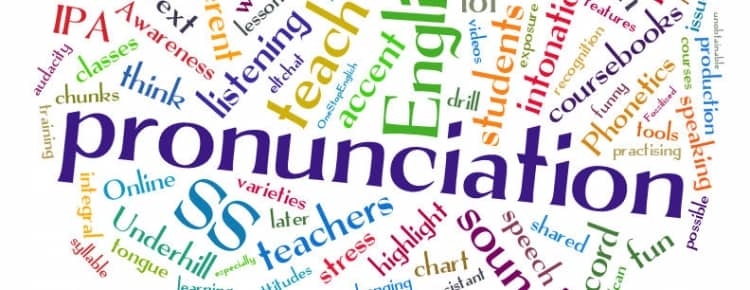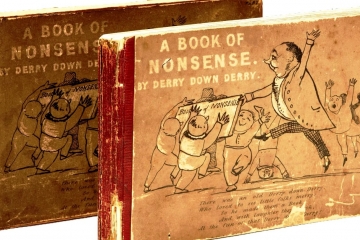
It`s highly probable that the majority of online English learners have experienced some problems with listening comprehension. Having English classes on Skype or talking to native speakers it`s quite possible that sometimes, you find it difficult to recognize some words or phrases which in actual fact, turn out to be the simple ones. At the same time, it`s more than likely you had that situation: foreigners couldn’t understand a SIMPLE word you were trying to say them.
What is the reason? Finally everything is explicable in terms of phonetics, i.e. variations in English and Russian pronunciation. As there is too little attention paid to phonetic aspects at schools and Universities, we model a full ability to pronounce English sounds but in a Russian way. This is also a bottom of our incapacity to comprehend speech of native speakers when they speak Russian. Speaking Russian as a foreign language, they add English sounds to Russian speech. As a result, neither a native speaker nor we can distinguish the word definition. It only happens because of the wrong pronunciation of the word which makes it sound like “abracadabra”.
Is there any way to improve our English pronunciation and is it necessary?
It`s not difficult to get the answer on these questions: you NEED to work on your pronunciation from the first days of learning English. The sooner learners start giving the sounds much thought and get the main differences between Russian and English pronunciation, the better they start saying the words. They start sounding like clear and understandable speakers of English.
Let`s look at some major phonics rules of English which you always need to remember pronouncing English words:
1. [w] and [v]
Unlike Russian [В] in English there are 2 different sounds. These sounds are denoted like [w] and [v].
In order to pronounce [w] sound correctly, you need to get your lips in a tubular positionas when you pronounce the Russian [у] sound (that`s why this sound is called bilabial). After your lips form a tight circle for [у] sound, pronounce [в]. English sound [w] is an intensive one. So, don`t remove tension from the mouth by moving lips.
Try to read some words following the instruction:
You can also watch the video lessons on how to pronounce [w] sound:
In order to pronounce [v] sound correctly, you need to make either your lips or teeth work. For this reason, this sound is called labiodental. You should make it like this: imagine that you have some ice-cream left on your lower lip and you want to clear it away with your upper teeth, as if you bite a bit your lower lip. You can also imagine the situation when your lower lip itches and you want to relieve this itch with your teeth. In other words, you will know that you pronounce the [v] sound correctly if you see your top teeth.
The illustration of correct pronunciation is presented below:
Now we read, following the correct position:
Vicky, victory, very, vocabulary, visa, Vietnam, village, vista, vital, virus, variety, Virgo
To practise the difference of [w] и [v] sounds, use this tongue-twister:
Very well, very well, very well, Willy fell in the well.
You can find one more tongue-twister on [w] и [v] sounds here. It`s read by a native speaker.
2. [p], [t], [k]. It`s important to remember that these 3 sounds are not similar to the Russian [п, т, к]. English [p], [t], [k] are pronounced with aspiration or a strong burst of air coming from lungs. With all this going on, you gain the impression that you ran 3 km and now you find it difficult to breathe. In the same way, while running, in order to produce any sound, you push out the air from lungs, like shown here in the video. To check you are doing everything right, you need to put one corner of a sheet of thin paper in front of your lips, 10-12 cm and pronounce the sounds one after another. If that paper corner moves, you can be sure you are doing everything right.
The most famous tongue-twister aimed at practising these sounds is “Peter Piper” .
Here is the text of the tongue-twister:
Peter piper picked a peck of pickled pepper.
A peck of pickled pepper Peter piper picked.
If Peter piper picked a peck of pickled pepper,
Where’s the peck of pickled pepper Peter piper picked?
You can listen to the pronunciation of a native speaker here
3. Long and short sounds- [e, ǽ], [i, i:]. Every English learner should highlight this rule as the meaning of a word directly depends on the way we pronounce the sounds, in its short or long way. If you want to avoid misunderstanding saying bitch (with a short sound [i]) instead of beach (with a long one [i:]), think every time of the way you pronounce the words.
In the video below, you can listen to the native speaker who explains the difference between the sounds [e] [i] and [i:]. At the end of the video lesson you can practice by repeating after the English teacher online:
Try to read the following pairs of words and get the difference in pronunciation and the meaning of a word:
Bitch – beach
Peck – pack
Bed-bad
Fit – feet
Nit – neat
Filled – field
To drill pronunciation of short and long sounds, you can use the following tongue-twisters:
1. Kitty meets Minnie “Minnie”, says Kitty, ‘Look at my pinny’ ‘Isn’t it pretty?’
2. Cheater Cheater chews a chunk of cheap cheddar cheese.
3. I slit the sheet, the sheet I slit, and on the slitted sheet I sit.
4. Betty Botter bought some butter,
"But," she said, "this butter's bitter.
If I bake this bitter butter,
It would make my batter bitter.
But a bit of better butter
Would make my batter better"
So she bought a bit of butter,
Better than her bitter butter,
And she baked it in her batter,
And the batter was not bitter.
(You can listen to the pronunciation on Youtube)
We wish you a successful work on English pronunciation! If you need a professional support of our online English teachers, remember that the doors of our Skype-Language.com online school are always open to you.
Wait for to the other articles on English pronunciation!































